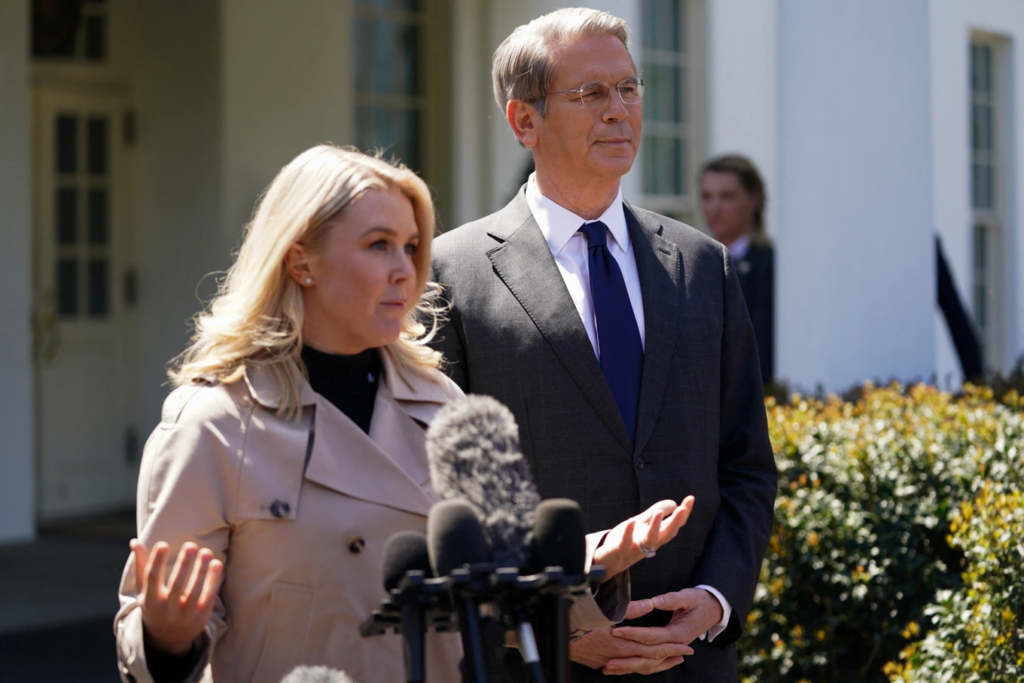90-day tax deferral
US President Donald Trump announced a 90-day moratorium on reciprocal tariffs and reduced the rate to 10%. The decision takes effect “immediately”.
“Based on the fact that more than 75 countries have reached out to representatives of the United States, including the Department of Commerce, the Department of the Treasury, and the Office of the United States Trade Representative, to negotiate solutions to the issues being discussed relating to trade, trade barriers, tariffs, currency manipulation, and non-currency tariffs, and that these countries, at my strong request, have not retaliated in any way or shape against the United States, I have authorized a 90-day suspension of tariffs and a significantly lower reciprocal tariff during this time, of 10%, also effective immediately,” Trump announced.
Increase taxes on Chinese goods
The US leader also announced that he would increase tariffs on Chinese goods to 125%.
“Based on the disrespect that China has shown to the world market, I will be raising the United States’ tariffs on China to 125%, effective immediately,” Trump announced.
The White House has confirmed President Trump’s announcement of imposing a 125% tariff on China, suspending the tariffs for 90 days and reducing them to 10% for other countries. The White House confirmed the decision is effective immediately.
White House press secretary Karoline Leavitt said Trump raised tariffs on China because “when you hit the United States, President Trump hits back harder.” Leavitt said the US would continue to have tailored talks with each partner and tariffs would be reduced to a general level of 10% during the negotiations.

US Treasury Secretary Scott Bessent (right) and White House Press Secretary Karoline Leavitt speak in the Rose Garden about tariffs on April 9 (Photo: Reuters).
US Treasury Secretary Scott Bessent said President Donald Trump’s decision to suspend tariffs on countries other than China was in response to countries that chose not to retaliate against the US amid escalating tensions.
Bessent said the tariff pause would allow time to negotiate new trade deals. “It took a lot of courage for him to stay the course until now,” Bessent told reporters at the White House shortly after Trump announced the 90-day pause on reciprocal tariffs.
Bessent said tariffs would be reduced to 10% for countries that want to negotiate with the US, including Canada and Mexico. “Any country in the world that wants to come to the table, we’re ready to listen,” Bessent said.
The US administration expects countries to come to the president with their best deal as it seeks to reshape global trade, Mr. Bessent said.
President Trump’s announcement came about half a day after reciprocal tariffs he announced on 180 trading partners took effect on April 9.
Under the new tariff policy, the US will impose a 10% tariff on most imported goods from April 5, while the tariff on imported cars will be 25% from April 3. About 60 countries with high trade surpluses with the US will be subject to higher tariffs, up to 50% from April 9.
US officials say the policy is aimed at bringing manufacturing back to the US and addressing trade imbalances. However, some analysts worry that the tariffs will have a negative impact on the US and global economies in general.
After President Trump’s reciprocal tariffs took effect, China and the European Union (EU) simultaneously announced their own retaliation. China announced that it would impose an 84% tariff on imports from the US, while the EU also began collecting a 25% import tariff on a range of products imported from the US.
US Treasury Secretary Scott Bessent confirmed on April 7 that about 50-60, even up to 70 countries and territories have contacted the US to negotiate.
President Trump said the US is making “tailor-made” deals with each trading partner.



